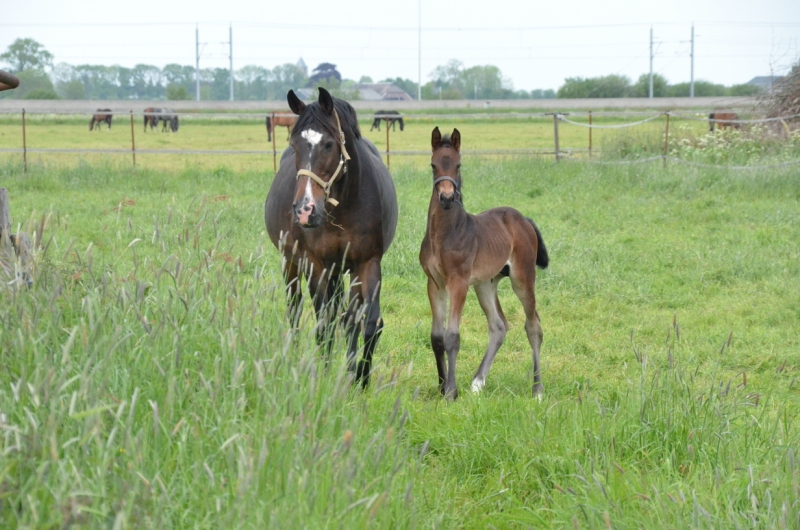Rhinopneumonia: Why does it keep popping up?
Recently, the horse-loving world has been startled again by reports about the neurological variant of rhinopneumonia. There are also reports about the abortion variant every year. The cold variant of rhinopneumonia is less spoken about, despite the fact that it is by far the most common.
Rhinopneumonia (rhino = nose) is caused by the Equine Herpesvirus 1 or 4 (EHV-1 / EHV-4). The Equine Herpes Virus occurs worldwide and is animal species specific. This means EHV-1 and EHV- 4 are not dangerous for humans or other animal species than horses. EHV-1 has several variants, but all variants can sometimes cause abortion or neurological symptoms. This makes distinguishing between variants only important from a scientific point of view.
Contamination
Contamination with EHV-1 or EHV-4 virus particles occurs as a result of ingestion of these virus particles through inhalation or through contact with infectious animals or contaminated objects, such as a bit or hands of humans. In the vast majority of cases, the virus multiplies in the nose and throat and occasionally in the deeper airways. This is how the virus causes cold symptoms. Sometimes the mucous layer in the nose, throat, trachea and further branches becomes so severely damaged, that the virus can penetrate into the underlying tissues. The virus particles can then be taken up in the white blood cells, come to the lymph nodes and then also circulate in the blood (this is called viraemia = virus in the blood). Usually only EHV-1 penetrates this far and can reach areas like the uterus, brain and spinal cord.
Effects
When the virus settles in the uterus, a vascular inflammation develops in the innermost layer of the uterine wall and the placenta and the fetus are rejected. An abortion then follows. The susceptibility of the uterine wall to such an infection is much greater in the second part of the pregnancy than in the first part. If the virus settles in the nervous tissue of the spinal cord or brain, a vascular infection develops there too, which can lead to small clots in various places in the spinal cord (myelopathy) and / or in the brain (encephalopathy). As a result, the sick horse can start to show all kinds of (neurological) nervous symptoms.
Prevention
Vaccination with a registered rhinopneumonia vaccine gives good protection against the common cold variant. That means to administer the primary vaccination between 5-6 months of age with two injections 4-6 weeks apart and then repeat this twice a year. In well-vaccinated groups, abortion is less common, although breakthroughs of the abortion variant may occur. No vaccine claims to protect against the neurological form of rhinopneumonia and outbreaks occur in both unvaccinated and well-vaccinated groups. Vaccinated horses, however, excrete less virus in the event of an infection, which reduces the risk of spreading. Not allowing horses from outside to enter a farm and not going off property yourself of course reduces the risk of infectious diseases being introduced, but this is not a realistic option on many farms. After all, most people keep horses to go to competitions or out on hacks, etc. An outbreak can also occur on a fully closed farm, because more than 30% of the Dutch horses carry the EHV-1 virus and those horses can, for example, start shedding virus again under stressful conditions. If all horses in the Netherlands were to be fully vaccinated, this would of course reduce the infection pressure, but as it currently looks, neither the government, nor the sports organizations or registries/ studbooks will make vaccinations against rhinopneumonia compulsory.
Read here everything about rhinopneumonia
Text: Prof. Dr. Marianne Sloet, Equine University Clinic, Utrecht. Translation: Liesbeth van Woerden.























 KWPN Database
KWPN Database KWPN.tv
KWPN.tv KWPN Horses for Sale
KWPN Horses for Sale